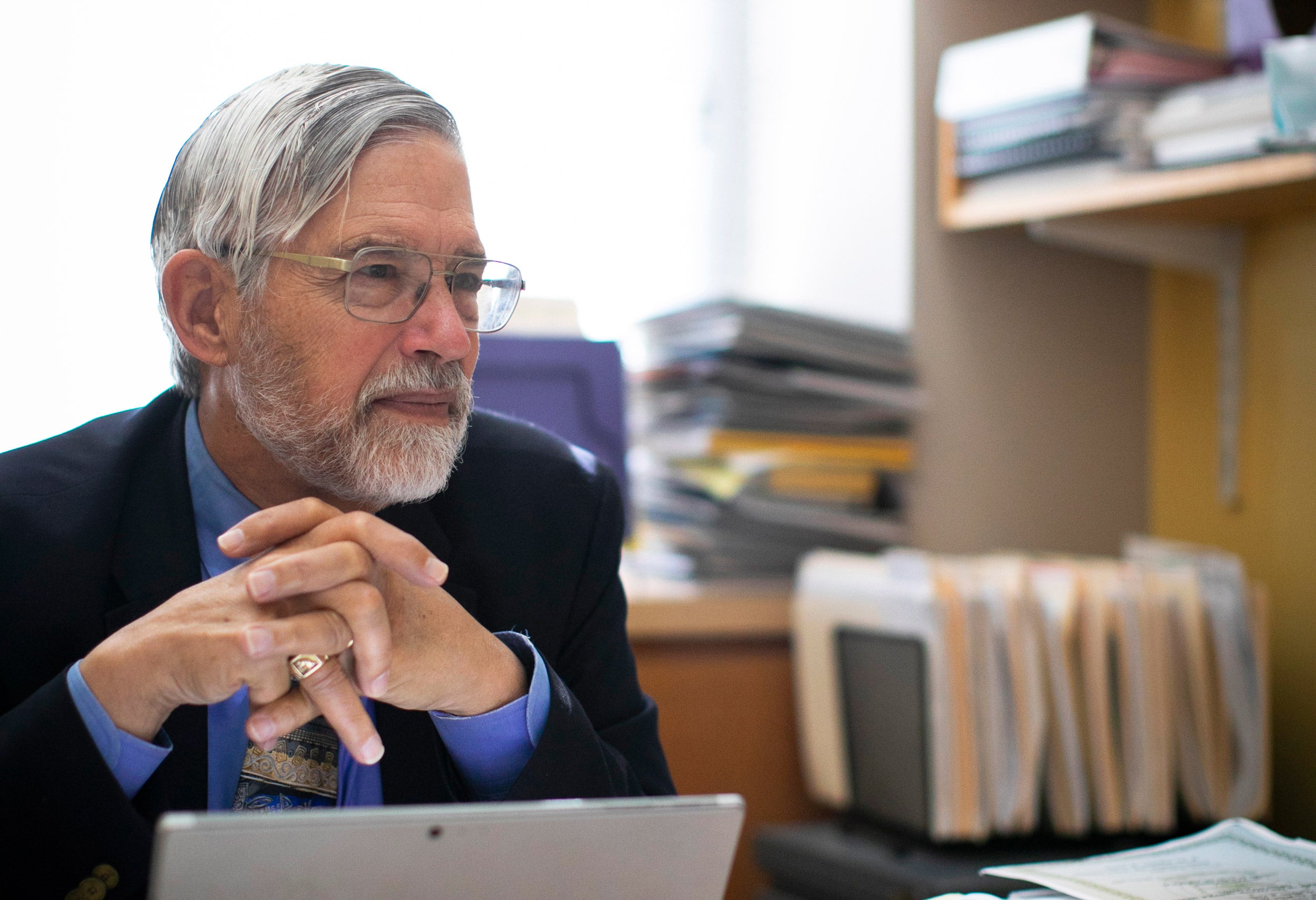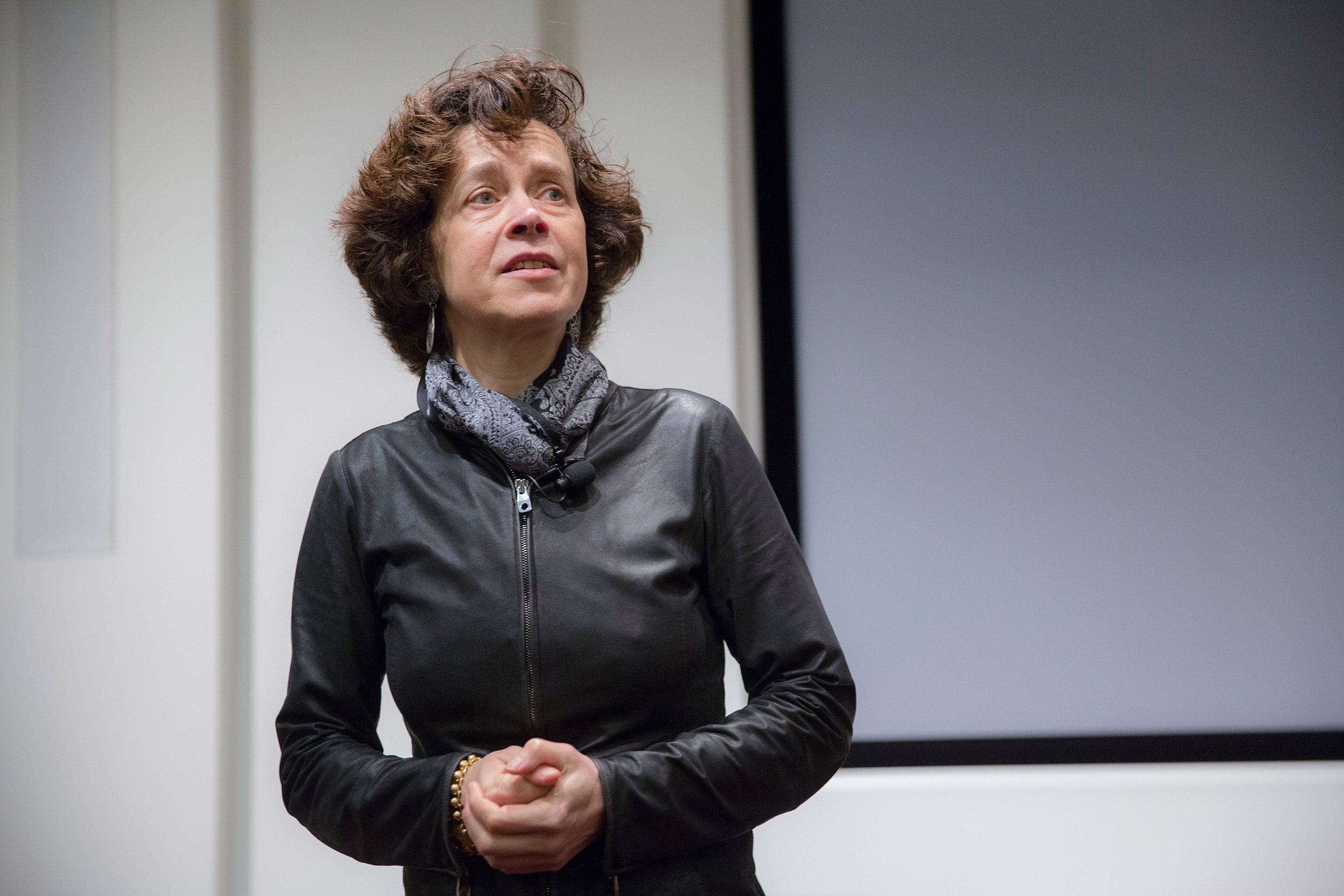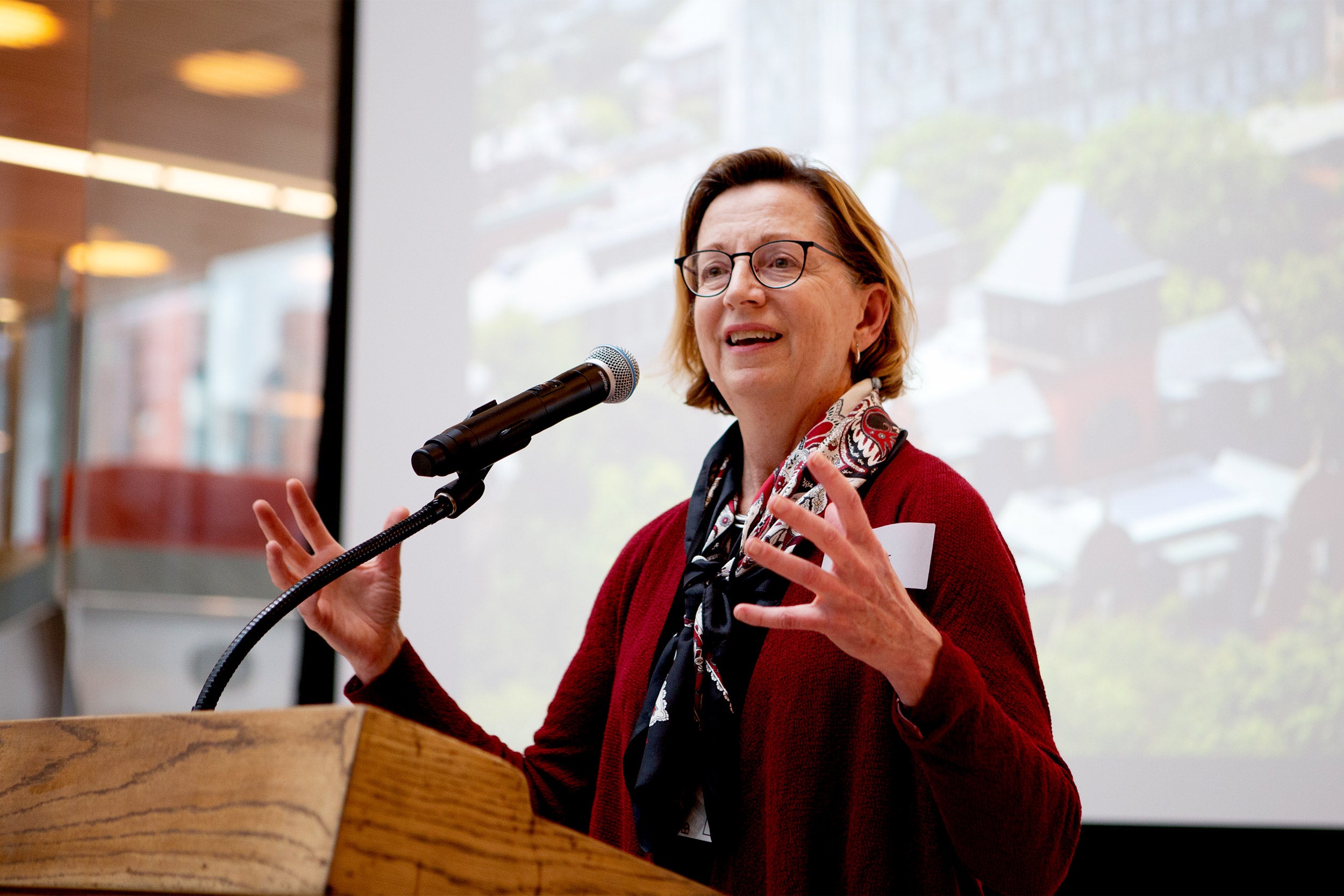Harvard University has created a Presidential Committee on Sustainability (PCS) to advise President Larry Bacow and the University’s leadership on sustainability vision, goals, strategy, and partnerships. The panel will continue the practice of viewing campus as a testbed for initiatives and lead the work toward reaching overall goals, including being fossil-fuel-neutral by 2026 and fossil-fuel-free by 2050, while leveraging University strengths to catalyze solutions beyond campus walls. Various PCS subcommittees, which will include additional faculty and student members, will focus on Scope 3 emissions, defining fossil-fuel neutral, energy-reduction opportunities in Harvard’s buildings, and other issues. The Gazette spoke with committee chairs Rebecca Henderson, the John and Natty McArthur University Professor; John Holdren, the Teresa and John Heinz Professor of Environmental Policy at Harvard Kennedy School; and Katie Lapp, executive vice president, about why it is so important to act now, the role of the PCS in developing collaborative and innovative projects; and how the campus community can get involved.
Q&A
Rebecca Henderson, John Holdren, and Katie Lapp
GAZETTE: Why is now such a critical time for leadership and action with regard to sustainability?
HENDERSON: The climate change problem is so significant, and it is, of course, not the only environmental problem that we are facing today. We are poisoning the oceans, exhausting the topsoil, polluting our water supplies, and destroying species at an unprecedented rate. If current rates of decline continue, the coral reefs will be largely gone by 2050.
So, why now? The longer we wait, the more costly and difficult it will be to try to arrest the effects of climate change. Climate change is an enormous threat to the health of our economy and to the health of our people. Many experts have argued that COVID-19 is in fact an example of the danger of unchecked environmental destruction; that one of the reasons we’re seeing an increase in the leap of viruses from animals to people is because we are intruding on territories that previously were considered to be remote for humans. The simple increase in heat is already causing severe economic stress at the equatorial regions — it’s too hot to work in New Delhi on many days of the year. We need to act now because the longer we leave it, the more expensive it will be for all of us. We also need to act now because it’s still possible to slow climate change. We have a sense of what the technologies are that can enable us to transition to a greatly carbon-reduced economy, and we need to implement them now, in as widespread a manner as we can.

HOLDREN: We have a short time to turn around the global increases in emissions of heat-trapping gases that are driving this terrible degree of climate change and that are leading to the severe problems that Rebecca spoke about, and others such as the enormous increases in wildfires and torrential downpours and flooding, in the acceleration of sea level rise, and in the increased frequency and intensity of droughts.
And we really have to get on with it, now. The damage to our Earth we’re already seeing with average temperatures 1.1 or 1.2 Celsius above pre-industrial values is frightening. In a couple of decades, at the current rate, we’ll be at 1.5 Celsius or more above pre-industrial values, and the research tells us that this could be catastrophic.
LAPP: Harvard has set clear, University-wide sustainability goals for solving real-world challenges threatening the health and well-being of people and the planet. This has resulted in an extraordinary level of collaboration across our diverse and decentralized campus. Partnerships between our students, researchers, faculty, and staff have allowed us to increase the efficiency and effectiveness of our operations, institutionalize best practices, and generate solutions that can be scaled up and widely replicated beyond the boundaries of our campus.
GAZETTE: What role can Harvard play in helping to lead on finding solutions to the effects of climate change?
HOLDREN: Harvard is, of course, a leader in the academic world; we have hundreds of faculty members deeply engaged with these questions, who aim very much to be a significant part of the solution. But more than that, Harvard is a leader in developing collaborative, innovative projects that link civil society, academia, and the private sector.
Solving climate change and sustainable development is a highly interdisciplinary and intersectoral problem by its nature, and Harvard has extraordinary strengths across the full range of the relevant disciplines. We have individuals at the tops of their fields who are researching and teaching about sustainability and climate change, and not only in the natural sciences and engineering, but also in business, law, science, public policy, the full range of social sciences, and of course, at the professional Schools, too. We have a great opportunity to all work together on producing a whole that is greater than the sum of the parts.

HENDERSON: Teaching and research is of course fundamental to what we do at Harvard, but the committee has also been charged with thinking about how Harvard can make a difference on the ground. One of the goals of the committee, which includes faculty members from all of the fields that John mentioned as well as students representing Harvard College, the Business School, and the Kennedy School, is to ensure that Harvard reaches the commitments it made in terms of operations and being fossil-fuel-neutral by 2026 and fossil-fuel-free by 2050, and also, to advance knowledge for our community and beyond on what this really means, and what practices can best help us to reach these goals. Harvard, by the nature of our reputation and our partnerships, has an opportunity to be a leader and a catalyst in encouraging other institutions to commit to similar goals.
LAPP: We encourage our students, researchers, faculty, as well as staff, to use the campus and surrounding community as a living lab to test exciting ideas and pilot promising new solutions to real-world challenges threatening the global health of people and the planet. We are committed to applying research and, by taking actions that make our community more efficient and hopefully a model, to drive global solutions to climate change and sustainability.
GAZETTE: What are the goals of the new committee?
HOLDREN: The committee was formed as a response to President Bacow’s very specific request to look at how Harvard could meet the goals that were set forth in a previous committee on sustainability at the University, and to advise on the direction of the University’s overall sustainability vision and plan. Harvard’s greatest impact will be to tap the faculty, students, and staff to apply the latest thinking and research, not only to achieve this University’s goals, but ultimately to advance global sustainability solutions. The committee, in close partnership with the Office for Sustainability, is working with students, researchers, faculty, and staff to leverage our strengths, to experiment, innovate, learn, and share what we learn to help society.
The goals set forth by the PCS are designed to augment the University’s missions in teaching and research by showing that Harvard is serious about action and not just ivory tower investigations. Our commitments to climate change and sustainability are not confined to research and technology development, but they are linking those domains to the domain of action. I know this is so important to our students, and in the end, of course, it’s critical to the entire world.

GAZETTE: How can Harvard community members take part in the actions set forth by the PCS?
HENDERSON: Every member of our community plays a role in changing the culture and the way we learn, work, and live. It’s been encouraging to see over recent years that tackling climate change on campus has resulted in an unprecedented level of collaboration across our community, allowing for significant progress to be made to achieve our past climate and sustainability goals, and providing the foundation for pursuing a more holistic sustainable development vision as a community.
One particular example of what individuals can do themselves is with regard to Scope 3 emissions, which are, in short, indirect emissions incurred by an organization and its employees, such as those attached to commuting and business travel. What’s most interesting about Scope 3 emissions is that we don’t yet fully understand their magnitude, and we’re just at the beginning of understanding what we can do about them.
One incredibly interesting research question, which community members can become directly involved with, is: Can behavioral interventions make a real difference in regard to Harvard’s commitment to slowing the effects of climate change? We’re learning now during the current pandemic that our lives move on more or less OK if we conduct business through Zoom. Moving forward, can Harvard community members consider whether a Zoom meeting might effectively take the place of a business trip to somewhere like Beijing, and if so, what kind of interventions, and supports, can we set in place to encourage individuals to make these kinds of choices?
HOLDREN: I completely agree with what Rebecca has just said in regard to Scope 3, and I think it’s important to mention that much more than business trips to Beijing is involved — that individuals need to look at their own commuting behavior and how making decisions to bike into work or use public transportation can have a positive and measurable impact. I also think Harvard needs to communicate effectively the ongoing work the University is doing to make its buildings more sustainable and sharing this kind of knowledge can inform decisions that community members make, for example, about the characteristics they want in their homes and cars. There’s a connection, in other words, between Harvard’s demonstrating how it’s taking action as an institution and people understanding how, as individuals, they can take meaningful action, too.
Also, we’d love to hear from members of the Harvard community about their ideas on sustainability. Those who aren’t yet involved, and would like to be, can engage with the work of the committee by connecting with the Office for Sustainability at green.harvard.edu.
Interview was edited for clarity and length.






















